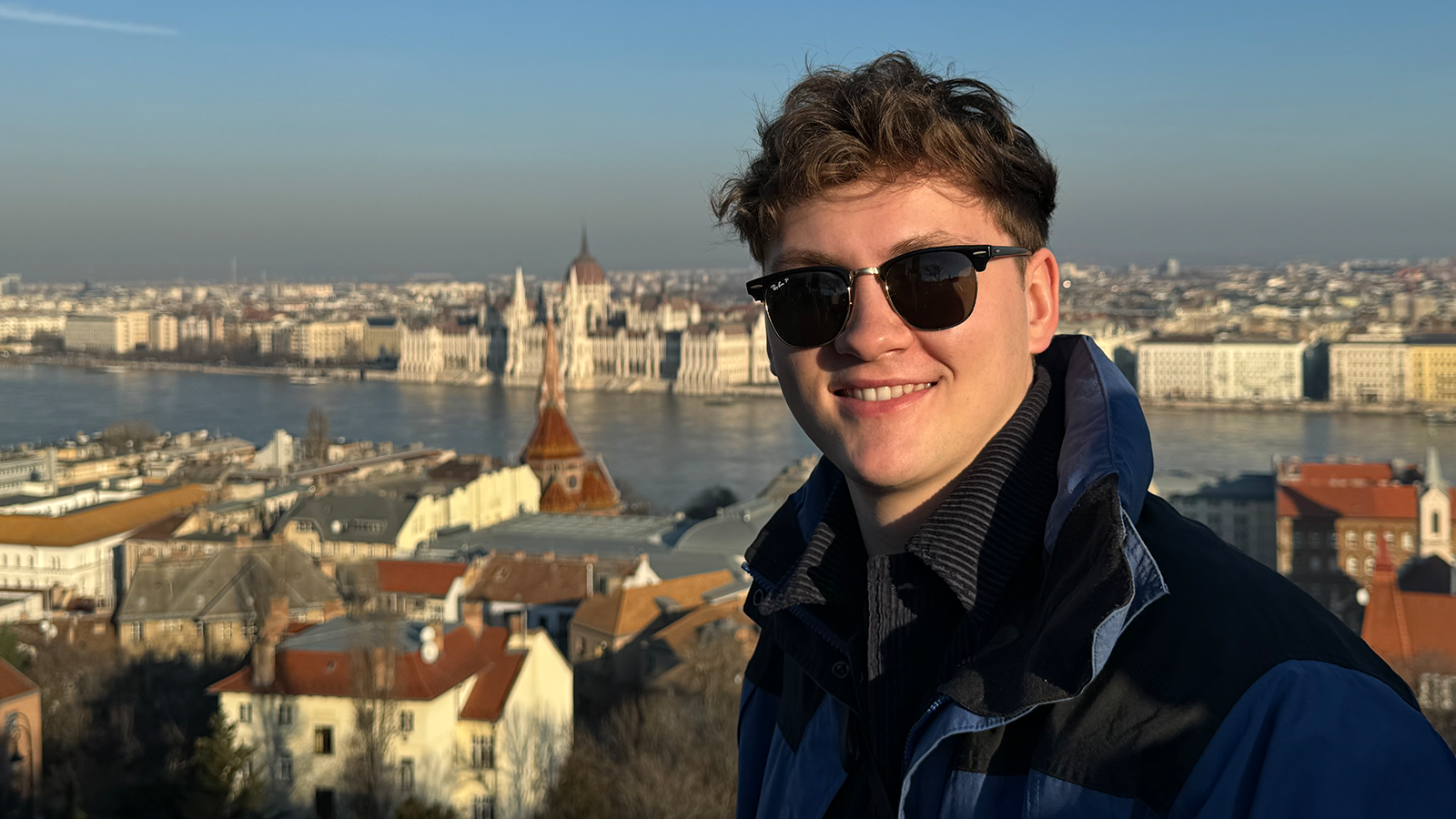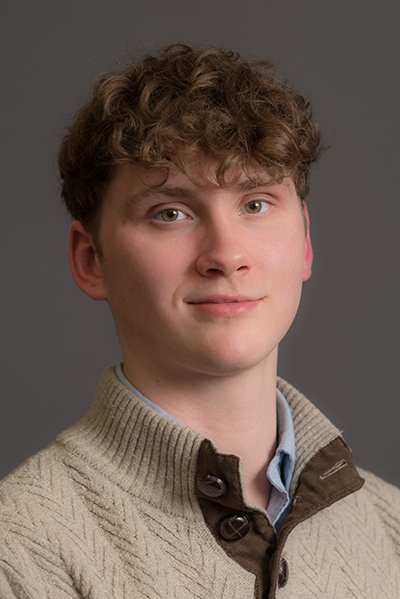
Trevor Morrison: Studying Abroad in Germany
Trevor Morrison, a senior from Hancock, Maine, spent the fall 2023 semester studying abroad at the University of Mannheim in Germany. A recipient of the Gilman Scholarship, Trevor stepped out of his comfort zone and learned much about himself during his semester abroad.
What is the Gilman Scholarship?
The Gilman Scholarship is a grant program of the U.S. Department of State’s Bureau of Educational and Cultural Affairs (ECA). It enables students of limited financial means to study or intern abroad. ECA fosters mutual understanding between the people of the United States and the people of other countries to promote friendly, sympathetic, and peaceful relations.
I learned about the Gilman Scholarship after transferring to UMaine after my first year. Its presence had been in my mind for two years before I decided to go abroad.
To be awarded validated the hard work I had put into that point to better myself as a student, friend, and ultimately as a person. Gilman extended my reach for resources and people. When I attended one of their conferences in Berlin, I met people completely different from myself with whom I bonded and created friendships. I wouldn’t have been able to afford to study abroad if it weren’t for the Gilman Scholarship. I am monumentally thankful for their selection.
Why was it important to you to study abroad?
Studying abroad meant stepping beyond my comfort zone and experiencing life as I knew it in a completely different way. I had grown up in a small town and had only once lived in another location for an extended period. I could think deeply about global issues, societal challenges, and cultural diversity by gaining a global perspective. The personal growth opportunities from adapting to new situations, academic structure, and navigating unfamiliar environments are quite expansive. If I leaned into the experience, it would be an opportunity to bolster my resiliency and self-confidence and further my career prospects. I had also been learning German, so what better way to improve my proficiency than to immerse myself in the country’s culture where it is commonly spoken?
What were your classes like at the University of Mannheim?
I chose my courses based on my UMaine majors, Finance and Business Information Systems and Security Management. Given that Mannheim offered many of these classes and has a direct-exchange partnership with UMaine, all the credits were easily transferrable.
I took FinTech, Corporate Finance, Behavioral Finance, Intro to Research Methods, and Financial Institutions courses.
The class and grading structure are very different from UMaine’s. While most classes meet two times a week for an hour and a half, others are categorized as “intensive seminars.” These classes were held over 2-4 weeks and would meet three times a week for anywhere from 4-7 hours. These intensive seminar classes were graded the same way as the normal ones, where one exam dictated 100% of the grade. There was little to no homework given. Personally, I prioritized taking intensive seminars because it allowed me to have free time in my week after finishing the course. These classes are NOT easy, so passing a final exam felt much more rewarding.
What was your life like as a student in Germany?
My typical week as an exchange student in Germany looked much different than at UMaine, but they had similar aspects. Unlike UMaine, public transportation is crucial to getting to and from anywhere in the city or anywhere in Europe, for that matter. During the week, I would take the bus to and from my apartment complex to the university and spend around five hours studying course material. Later in the afternoons, I would dedicate my time to a hobby of mine, the stock market. The market opened at 3:30 pm versus the U.S. East Coast open time of 9:30 am. So, after attending my 8:30 am classes and studying, I would watch/trade the markets. My evenings were filled with fun activities that the ESN VISUM Mannheim directors would create. I also joined a very competitive soccer league that played other established student teams at the university. I played with a team of Spaniards that drafted me at one of the orientation events. I had the opportunity to stay in shape, make close friends, understand a different way of playing, and learn some Spanish, too.
On the weekends, I would take trips spanning from 2-3 days to other countries in Europe. I visited Luxembourg, Netherlands, Austria, Italy, and France, among others. Traveling is a common and encouraged part of European student life culture. Everyone I knew would have a trip planned for the weekend, whether they were international students or not. I deepened my European experience while living and studying as a student resident in Germany.
Were there many other international students there? What kind of support system did you have?
There were many, many international students in Mannheim. Students traveled worldwide, from South Korea to Chile to Russia, to take graduate and undergraduate classes at Mannheim University.
The support system at Mannheim was robust. Faculty tried everything to provide solutions for academic complications, and the “ESN VISUM Mannheim” WhatsApp group chat included all the international students. The directors of this group were also university students. They organized at least two social events a week while incorporating planned trips to neighboring towns in Germany so that students could get the “German” experience. Student communities provided students opportunities to connect and pursue interests outside the classroom.
What should other MBS students know before embarking on a semester abroad?
Make sure you extensively research the country AND region you visit. Like the U.S., any country has different cultural factors within its regions. It would help if you had an idea of the academic environment, cultural norms, and logistical aspects. However, understand that no amount of research will truly prepare you for such a transition until you actually step foot on foreign ground. Some preliminary questions you should consider are: how proficient are the residents in your native tongue? Do you have ample time to complete visa applications, housing arrangements, and create a course selection?
Ultimately, be open-minded and embrace cultural differences. Studying abroad is not only about academics but also about personal growth and intercultural experiences.

